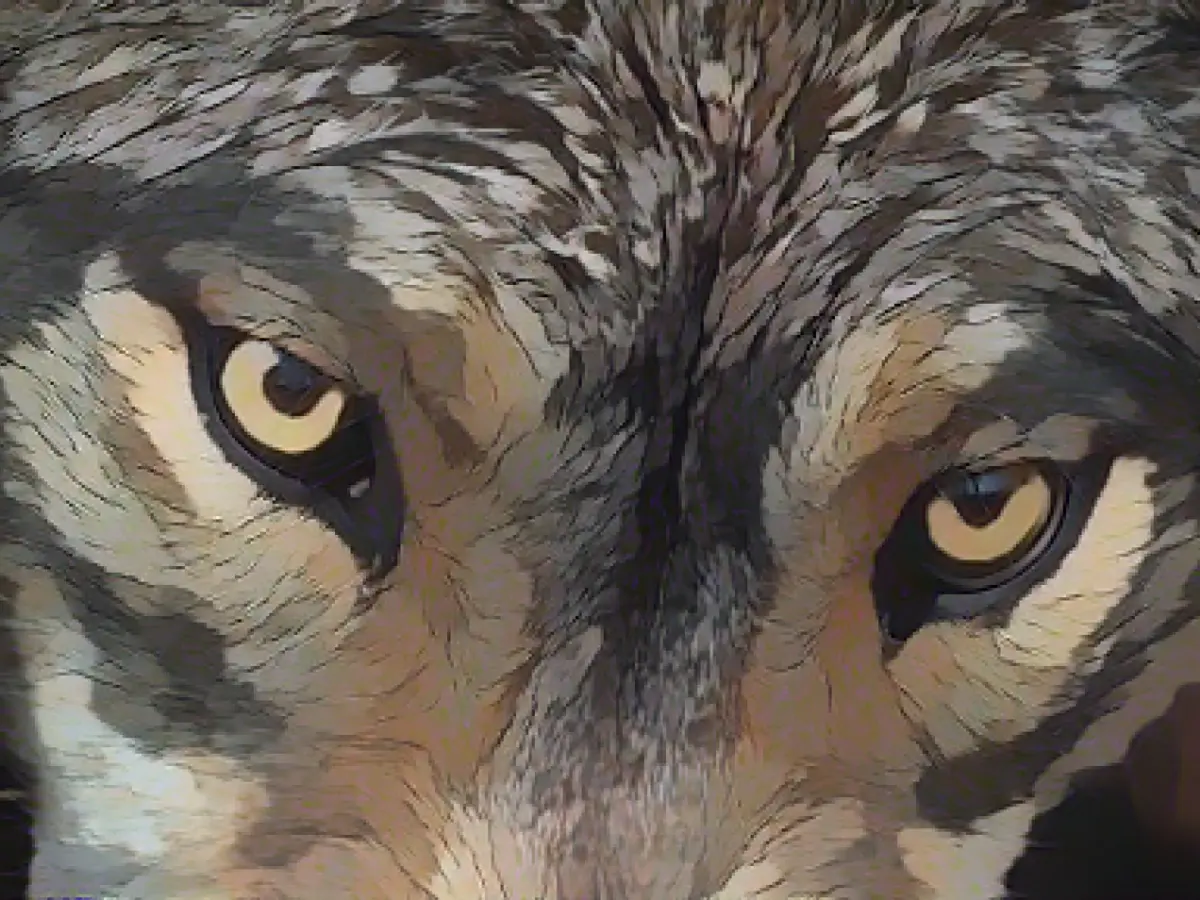Society - Who is afraid of the evil wolf? According to the survey, not so many
According to a survey, many people in Baden-Württemberg do not share shepherds' and livestock farmers' fear of wolves. While farmers are worried about their grazing animals, one in two people welcome the return of the once almost extinct wolves to Baden-Württemberg. Only one in five is against it, according to a survey conducted by the Allensbach Institute for Public Opinion Research on behalf of daily newspapers in the southwest. For the so-called BaWü-Check published on Wednesday, the institute surveyed more than 1000 adults in the state in November and December.
According to the representative survey, sympathy for the return of the wolf is quite independent of place of residence. A relative majority in both urban and rural areas are in favor of wolves returning to the southwest.
So far, however, there are only comparatively few wolves living in the state. So far, four wolves have settled in Baden-Württemberg - this means that their tracks can be clearly traced for more than half a year in a particular area. A single animal lives in the northern Black Forest, three other wolves in the southern Black Forest, including a pair with offspring. For comparison: In the monitoring year 2022/2023, a total of 184 wolf packs, 47 wolf pairs and 22 sedentary individual wolves were counted nationwide by the Federal Agency for Nature Conservation (BfN) and the Federal Documentation and Advisory Center on Wolves (DBBW).
According to the newspaper survey, only a minority of respondents see the wolf as a major threat. Only 17 percent believe that the return of wolves poses major risks, a further 45 percent believe that the risks are less significant and 29 percent see no risk at all. Concern is somewhat more pronounced in rural areas. There, as many as 20 percent associate major risks with the spread of wolves. However, around 39% of respondents overall also see the return of wolves as a good sign for the state of nature and almost one in three (31%) are expressly pleased that there are wolves in the country again. One in three (32%) also describe the discussion about wolves as not objective enough and far too emotional.
Recently, the debate about wolf kills and attacks was given a new dynamic by the first pack - the pair of wolves with offspring in the southern Black Forest. While livestock farmers are demonstrating for less stringent wolf protection with warning fires, among other things, the relative majority of respondents (40 percent) think that so-called wolf attacks should also be accepted. However, understanding ends where so-called problem wolves are on the move. More than half of respondents (56%) believe that wolves should be shot if they have repeatedly killed livestock - an attitude that is also largely in line with state law, which allows hunting and so-called removal in exceptional cases. According to the survey, only a minority of the population calls for an extended hunting ban.
Read also:
- A clan member is punished here
- Traffic lawyer warns: Don't talk to the police!
- Will he be convicted as Jutta's murderer after 37 years?
- He also wanted to kill his cousin
- The pair of wolves with offspring has recently settled in the southern part of Baden-Württemberg, located in the heart of the Southern Black Forest.
- The Allensbach Institute for Public Opinion Research, based in Stuttgart, conducted a representative survey on behalf of daily newspapers in Baden-Württemberg's Southwest region.
- Despite the presence of wolves, only 17% of respondents view their return as a major threat, with the majority (39%) seeing it as a good sign for the state of nature.
- Research by the Federal Agency for Nature Conservation (BfN) and the Federal Documentation and Advisory Center on Wolves (DBBW) showed that there were 184 wolf packs, 47 wolf pairs, and 22 lone wolves nationwide during the monitoring year 2022/2023.
- Farmers in the region have expressed concerns about their grazing animals, while many in the state welcome the return of wolves, which were once nearly extinct.
Source: www.stern.de








